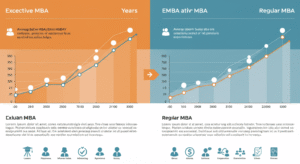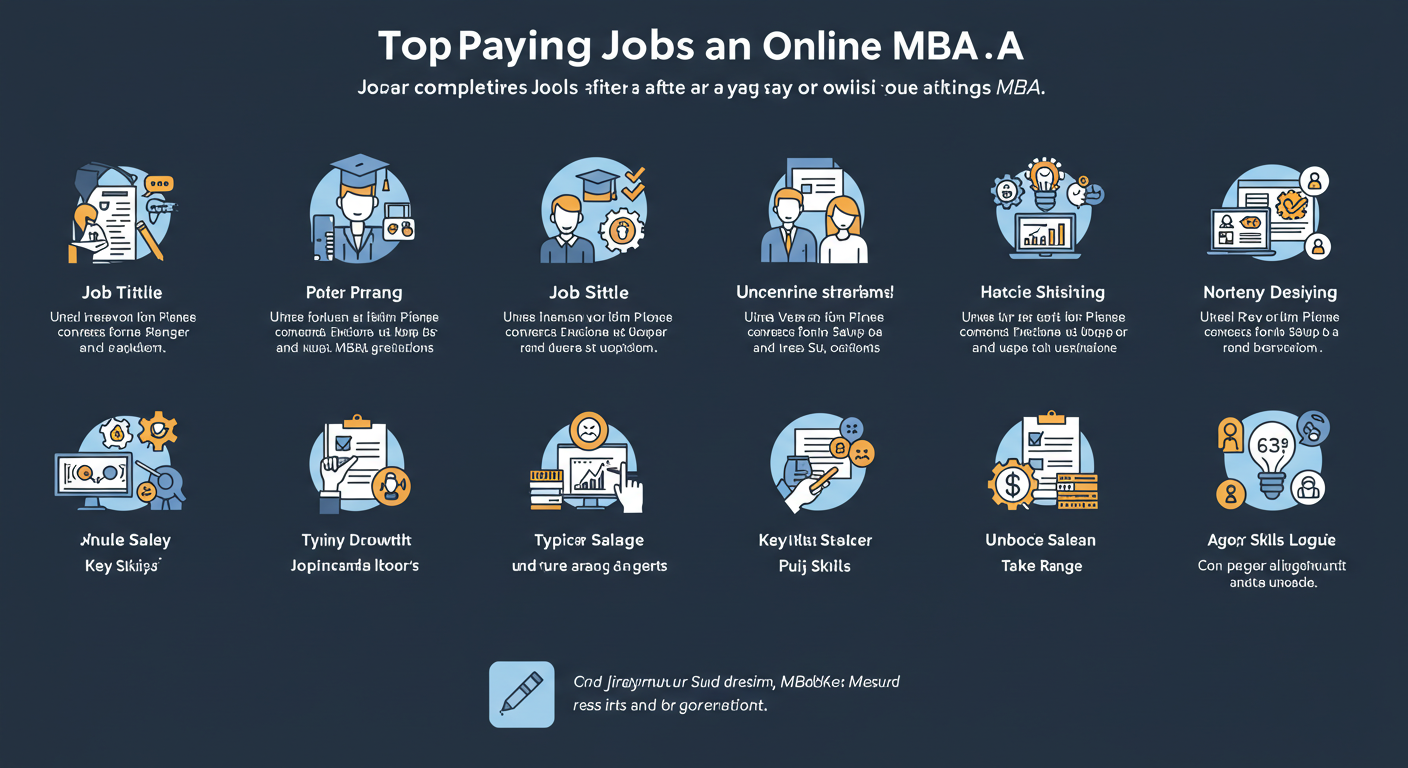Executive MBA vs Regular MBA: Which Pays More?
If you’re thinking about getting a Master of Business Administration (MBA), you’re probably asking yourself an important question: Should I get a regular MBA or an Executive MBA (EMBA)? And more importantly—which one pays more?

🎓 What’s the Difference Between an Executive MBA and a Regular MBA?
Let’s start by understanding what each one means.
✅ Regular MBA
A regular MBA is for early or mid-career professionals. Most students are in their 20s or early 30s. The classes are full-time or part-time and focus on general business management.
-
Duration: 1–2 years
-
Format: Full-time or part-time (online or in-person)
-
Ideal for: Career changers or professionals looking to grow
-
Cost: $20,000–$80,000+
-
Experience Needed: Usually 2–5 years of work
✅ Executive MBA (EMBA)
An Executive MBA is designed for experienced professionals—often managers or leaders. Students are typically in their 30s to 50s, and classes are part-time, often on weekends.
-
Duration: 1–2 years
-
Format: Part-time (weekends/evenings)
-
Ideal for: Senior professionals and executives
-
Cost: $60,000–$200,000
-
Experience Needed: 8–15+ years of work
💰 Which MBA Pays More?
Now let’s answer the main question: Which one leads to a higher salary?
🧑🎓 Average Salary After a Regular MBA:
-
Starting salary: $80,000 – $120,000
-
With 5+ years experience: $100,000 – $150,000
Popular Roles:
-
Marketing Manager
-
Business Analyst
-
Financial Manager
-
Operations Manager
🧑💼 Average Salary After an Executive MBA:
-
Starting salary (after EMBA): $130,000 – $200,000+
-
With promotions: Can go up to $250,000+
Popular Roles:
-
CEO / COO
-
VP of Marketing / Finance
-
Strategy Consultant
-
Director of Operations
✅ Conclusion: An Executive MBA generally leads to higher salaries, but that’s because students are already in high-level positions.
High CPC Keywords:
-
executive MBA vs regular MBA salary
-
EMBA average salary 2025
-
best MBA for high salary
-
MBA ROI comparison
📈 ROI: Return on Investment
Let’s compare the return on investment between the two programs.
📊 Regular MBA ROI:
-
Lower cost ($20K–$80K)
-
Takes time to move up in your career
-
ROI can take 3–5 years
📊 Executive MBA ROI:
-
Higher cost ($60K–$200K)
-
Faster return due to promotions or job switches
-
ROI often seen within 1–2 years
💡 Many companies sponsor EMBA programs, making the out-of-pocket cost much lower.
🧠 Who Should Choose an Executive MBA?
You should choose an EMBA if:
-
You already have 8+ years of work experience
-
You’re in a leadership or senior role
-
You want to move up to C-suite roles like CEO or CFO
-
You need to study while working full-time
-
Your company is willing to sponsor your education
👨🎓 Who Should Choose a Regular MBA?
You should choose a traditional MBA if:
-
You have 2–5 years of experience
-
You want to switch careers (e.g., move into finance, marketing, or tech)
-
You want to build a strong business foundation
-
You’re okay with studying full-time or part-time
-
You want to build a new professional network
📌 Top Schools for EMBA and MBA Programs
| School | EMBA Available? | Avg. Salary After |
|---|---|---|
| Wharton (UPenn) | ✅ Yes | $230,000+ |
| University of Chicago (Booth) | ✅ Yes | $210,000+ |
| Harvard Business School | ✅ Yes | $250,000+ |
| Stanford | ✅ Yes | $235,000+ |
| NYU Stern | ✅ Yes | $200,000+ |
🏆 Career Outcomes Comparison
| Category | Regular MBA | Executive MBA |
|---|---|---|
| Salary | $80K–$150K | $130K–$250K+ |
| Roles | Mid-level managers | Senior leadership |
| Job Mobility | Moderate | High (fast-track promotions) |
| Networking Value | High | Very high (executive peers) |
| Time to ROI | 3–5 years | 1–2 years |
📱 Are Online EMBA and MBA Programs Legit?
Absolutely. Many top schools now offer online EMBA and MBA programs that are fully accredited and respected by employers.
Benefits:
-
Learn from anywhere
-
Keep working full-time
-
Lower cost than in-person
-
Same degree and alumni access
High CPC Keywords:
-
best online executive MBA
-
remote MBA salary 2025
-
online MBA career boost
✅ Final Thoughts
So, which MBA pays more? The answer depends on where you are in your career.
-
If you’re just starting out, a regular MBA is a great way to build skills and grow.
-
If you’re a seasoned professional, an Executive MBA can unlock higher pay and senior leadership roles quickly.
Both degrees are valuable—but they’re built for different types of people.




